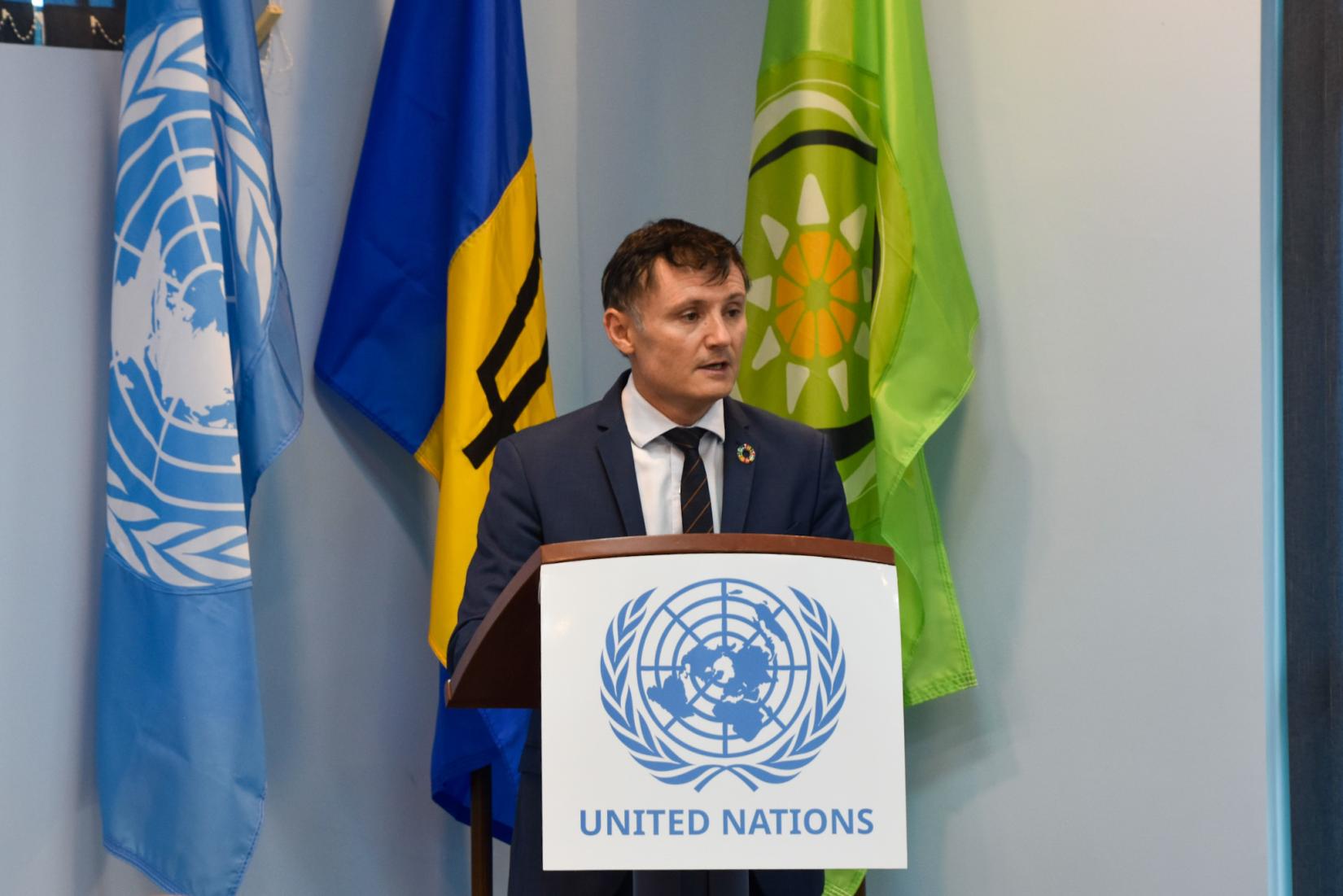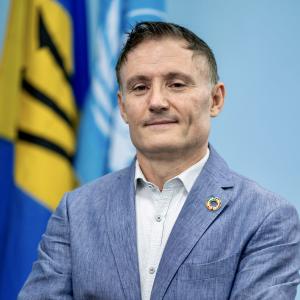Resident Coordinator's Op Ed for the International Day of Persons with Disabilities 2022
03 December 2022

During a recent event in the region, a human rights defender working for a more inclusive society, a person with disabilities himself, called us all to “demand change and help in the facilitation of that change”. We at the UN System in Barbados and the Eastern Caribbean are committed to heed his call and to join our voices and hands to champion, ignite and realize this change.
This year’s theme of “Transformative Solutions and the Role of Innovation for an Accessible World” is quite apt, as practical accommodations to everyday life often play a crucial role in helping to overcome physical and social barriers.
Sign language, braille signs, ramps, accessible messages in social media, are just a few of the essential accommodations needed to ensure that persons of all ages living with disabilities feel included and are easily able to access to information, services, and facilities.
In 2018, the UN Secretary General championed a UN Disability Inclusion Strategy to support States in the implementation of the Sustainable Development Goals (SDGs). This strategy permeates all aspects of the UN’s work - in peace, security, development, and human rights. Persons with disabilities are also one of the priority groups in our new UN Multi-country Sustainable Development Cooperation Framework 2022-26 which provides a blueprint for our work and partnership in the region.
Several UN agencies working in this region are supporting Governments in public policy development, capacity building, data analysis and public information campaigns, notably in relation to the implementation of the Convention on the Rights of Persons with disabilities. However, there is still room for Governments, for us in the UN, for development partners and the private sector, to amplify these efforts and to expand opportunities for development of innovative ideas and initiatives to better serve those who those who need them most.
For instance, there is a growing demand for new uses of technologies, for a different approach to urban planning and architecture, for diverse working and living arrangements, for social protection that can benefit persons with disabilities. There is also ample need and interest in looking more closely at how schools, hospitals, or public institutions are set up or function.
But this is not enough. One of the most transformative solutions for inclusion and accessibility does not require a particular technology, design of policy in place. It requires a change in our perceptions and attitudes towards persons with disabilities. Genuine innovation requires that all of us become agents of change. It is a transformation of our understanding of human diversity and of the wide range of capacities and abilities that all persons bring to society. It is an evolution towards a human -rights approach to perspective of disabilities.
The inclusion of persons with disabilities is a priority for the UN. Ensuring participation and visibility of persons with disabilities in all aspects of life enriches our families, our communities, and our organizations. It brings us closer to the aspirations of a fairer society and to a more complete understanding of humanity in all its complexity.

Didier Trebucq
Working closely with the national governments covered by the Multi Country Office and sub-regional institutions, the RC advocates with the UNST for the mandates of the UN system and the delivery of the UN Multi Country Sustainable Development Framework (MSDCF). The RC aims to bring together the different UN agencies to improve the coherence, efficiency and effectiveness of operational activities in the Eastern Caribbean region. As UN RC he is also the Designated Official (DO) for Security, responsible for the safety and security of all UN staff and their dependents.
Prior to becoming the Resident Coordinator for Barbados and the OECS, Mr. Didier Trebucq served as UNDP Country Director in Brazil. Previously he was the Deputy Resident Representative for UNDP in Peru and Deputy Resident Representative for UNDP in Guyana. He also worked in UNDP India as Programme Officer & Team Leader of Crisis Prevention and Recovery.
Before joining the UN, Mr. Trebucq worked as Head of Delegation of the French Red Cross in Colombia and Ecuador. Also, he was Administrator of "Médecins Sans Frontières" in Kyrgyzstan and Tajikistan and previously worked as an Executive in the private banking sector in France for five years.
Mr. Trebucq, a development Economist, holds a Master of Science in Sustainable Development, with specialism in Environmental Economics, from Imperial College London (UK) and a Master in Business Administration from the "Institut Français de Gestion" in France. He speaks fluently four languages: French, English, Spanish and Portuguese. He is the father of two sons.





